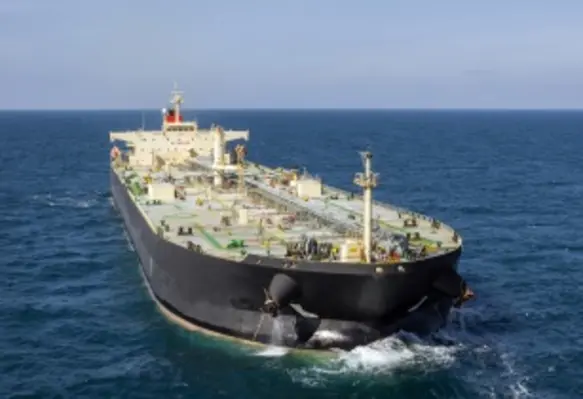bp and Maersk Tankers, with support from the Danish Maritime Authority, have successfully completed trials using biofuel-blended marine fuel in product tankers, demonstrating sustainable biofuels to be used as a marine ‘drop-in fuel’ to help reduce carbon emissions in shipping
According to bp, a multinational oil and gas company headquartered in London, global shipping accounts for around 3% of the global carbon emissions. bp is one of the major global marine fuel and lubricants suppliers, operators and charterers of tankers and other vessels worldwide. Maersk Tankers commercially manages the largest tanker fleet in the world and the companies came together in this trial as part of their contribution to the decarbonisation of the industry.
Carol Howle, bp’s executive vice president of trading and shipping, said, “At any one-time bp has around 300 ships on the water moving our products around the world. With an ambition to be a net-zero company by 2050 and help the world get there too, it’s vital we help decarbonize this hard-to-abate sector. We’re proud to be working with a partner like Maersk Tankers, to develop new alternative fuels and low carbon solutions that will help accelerate the shipping industry’s energy transition.”
The trials were completed on Maersk Cirrus and Maersk Navigator – product tankers on time-charter to bp from Maersk Tankers.
Christian M Ingerslev, Maersk Tankers’ chief executive officer, said “The need to cut emissions is one of the most important challenges facing shipping right now. We are only able to rise to this challenge if we do it in partnerships and explore a multitude of solutions. With bp, we are combining our expertise to play our part in testing and making alternative fuels available.”
Each vessel was supplied with bp Marine B30 biofuel, consisting of 30% fatty acid methyl esters (FAME) blended with very low sulfur fuel oil (VLSFO).
FAME is a renewable alternative fuel (biofuel) largely produced from recycled cooking oils and renewable oil sources. It has physical properties similar to conventional diesel, and is also non-toxic and biodegradable, according to bp. The origination and production of the feedstocks used to produce FAME are certified for its sustainability to internationally recognised standards.
The trials saw the vessels sail from Rotterdam to West Africa and tests were carried out to assess the reliability and performance of the B30 biofuel blend in each ship’s main engine, auxiliary engine and boiler and possible impact on fuel tanks to determine the level of interchangeability with other fuel types.
bp said that no adverse effects to equipment or machinery were observed during or after the trials, while no modifications were being done to the engine or infrastructure, demonstrating the suitability of sustainable biofuels for use as a ‘drop-in fuel’.
bp aims to regularly supply biofuel blends for their operated and time-charter vessels when they refuel in the Netherlands, subject to owners and Flag-state approval. bp said it is also working with companies in key industrial sectors that have significant carbon emissions to manage, supporting their work to decarbonise.
Maersk Tankers is also developing and deploying solutions that help shipowners boost the economic and environmental performance of their vessels. Through its pools and industry-wide collaboration, the company aims to work in partnerships to contribute to a more sustainable future for the industry.










